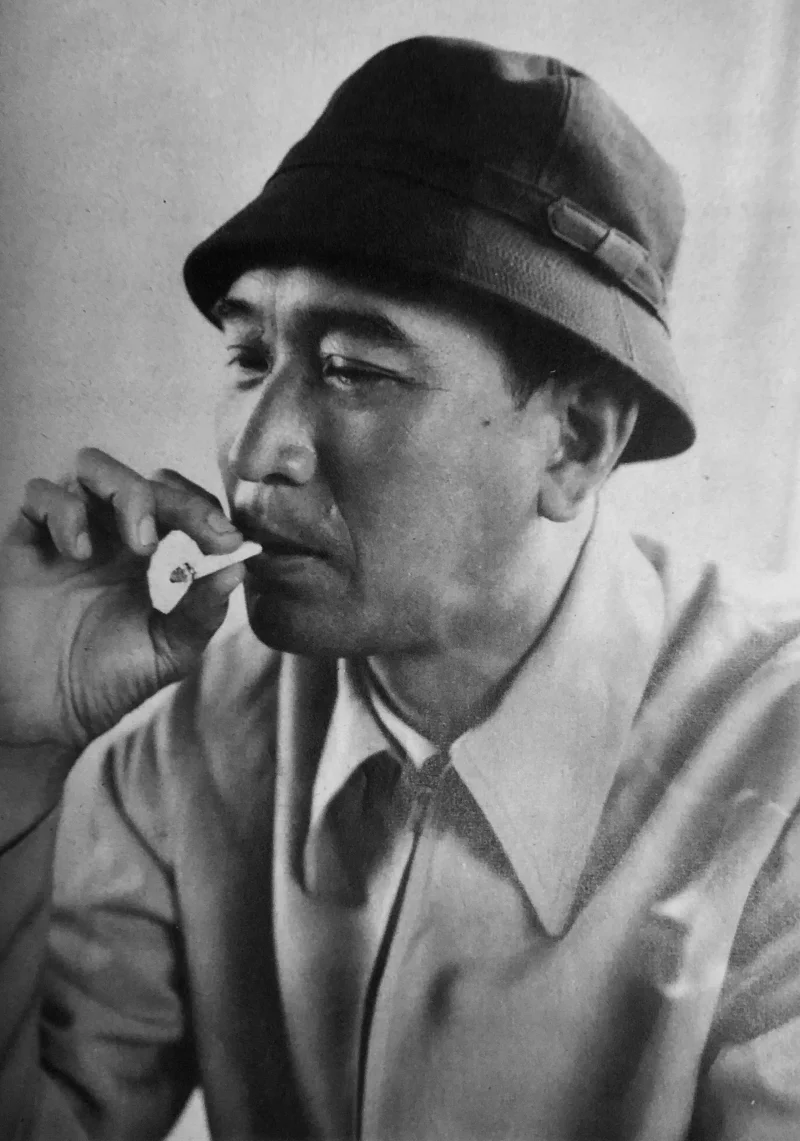Short Summary
Akira Kurosawa was a renowned Japanese filmmaker whose career spanned over five decades. He is celebrated for his innovative storytelling, masterful direction, and profound influence on cinema worldwide. Kurosawa's films, such as "Seven Samurai" and "Rashomon," have become classics, earning him multiple awards and solidifying his reputation as one of the greatest directors of all time. His work has inspired countless filmmakers and continues to be studied and admired globally.
Early Life & Education
Born on March 23, 1910, in Tokyo, Japan, Akira Kurosawa was the youngest of seven children in a samurai-descended family. His father, Isamu, was an army officer and educator who believed in the importance of Western education, exposing Kurosawa to both Japanese and European culture. Kurosawa developed an interest in art and literature early on, influenced by his older brother Heigo, a silent film narrator. After attending an art school, he initially pursued painting before discovering his passion for cinema, which led him to join the film industry as an assistant director in 1936.
Career Highlights
Kurosawa's career began in earnest when he directed his first film, "Sanshiro Sugata," in 1943. His breakthrough came with "Rashomon" in 1950, which won the Golden Lion at the Venice Film Festival and introduced Japanese cinema to the world. His 1954 epic, "Seven Samurai," became one of his most celebrated works, influencing many films internationally. Kurosawa's ability to blend traditional Japanese themes with Western filmmaking techniques earned him a unique place in cinema history. Over his career, he directed 30 films, including "Yojimbo," "Ikiru," and "Ran," each contributing to his legacy as a pioneer of modern filmmaking.
Major Achievements
- Won the Golden Lion at the Venice Film Festival for "Rashomon," bringing international attention to Japanese cinema.
- Directed "Seven Samurai," considered one of the greatest films ever made, influencing filmmakers worldwide.
- Received an Honorary Academy Award in 1990 for his cinematic accomplishments.
- His film "Ikiru" is celebrated for its profound existential themes and innovative narrative structure.
Famous Quotes
- "In a mad world, only the mad are sane."
- "The role of the director is to create a beautiful world."
Interesting Facts
- Kurosawa was known for his meticulous attention to detail, often sketching scenes before filming.
- He was an accomplished painter, and his artistic skills influenced his visual storytelling.
- He survived a suicide attempt in 1971 during a period of professional and personal crisis.
- Kurosawa's films often explored themes of human nature, honor, and the struggle between good and evil.
Legacy / Influence
Kurosawa's influence on cinema is immense, with directors like George Lucas, Martin Scorsese, and Steven Spielberg citing him as an inspiration. His innovative techniques, such as the use of weather elements and multi-camera setups, have become standard practices. Kurosawa's storytelling prowess and ability to transcend cultural boundaries continue to inspire filmmakers and audiences, ensuring his legacy endures in the global cinematic landscape.
FAQ
Q: Why is Akira Kurosawa famous?
A: He is renowned for his groundbreaking films and his influence on global cinema.
Q: What are some of his most famous films?
A: "Seven Samurai," "Rashomon," and "Ikiru" are among his most acclaimed works.
Q: Did Kurosawa receive any international awards?
A: Yes, he won several prestigious awards, including the Golden Lion and an Honorary Academy Award.
Q: How did Kurosawa influence other filmmakers?
A: His innovative techniques and storytelling inspired many directors, shaping modern cinema.












